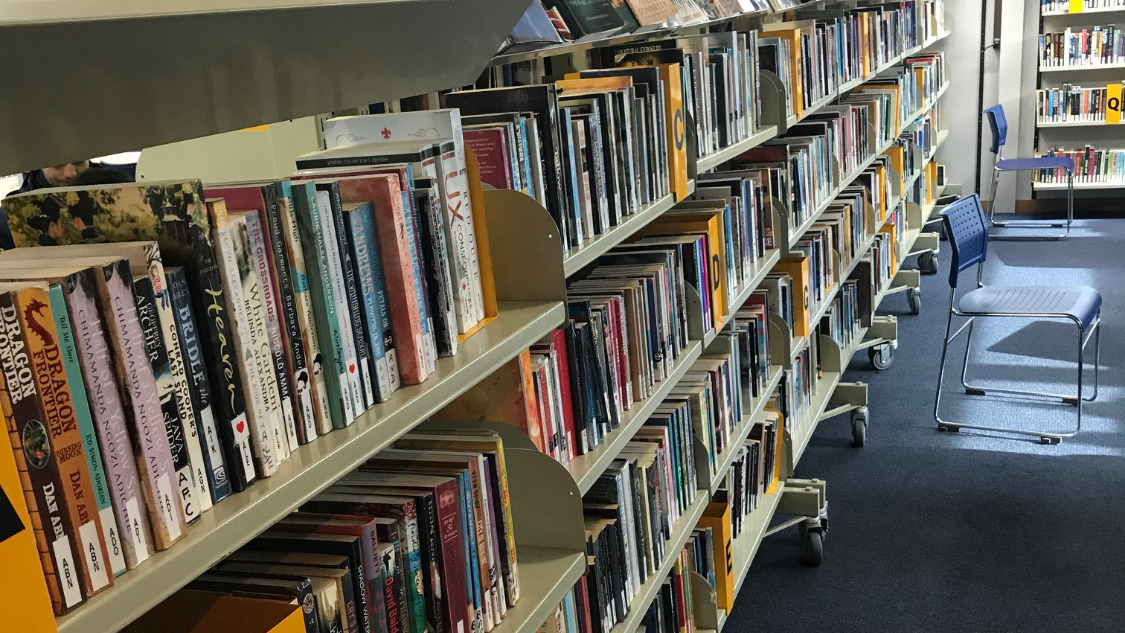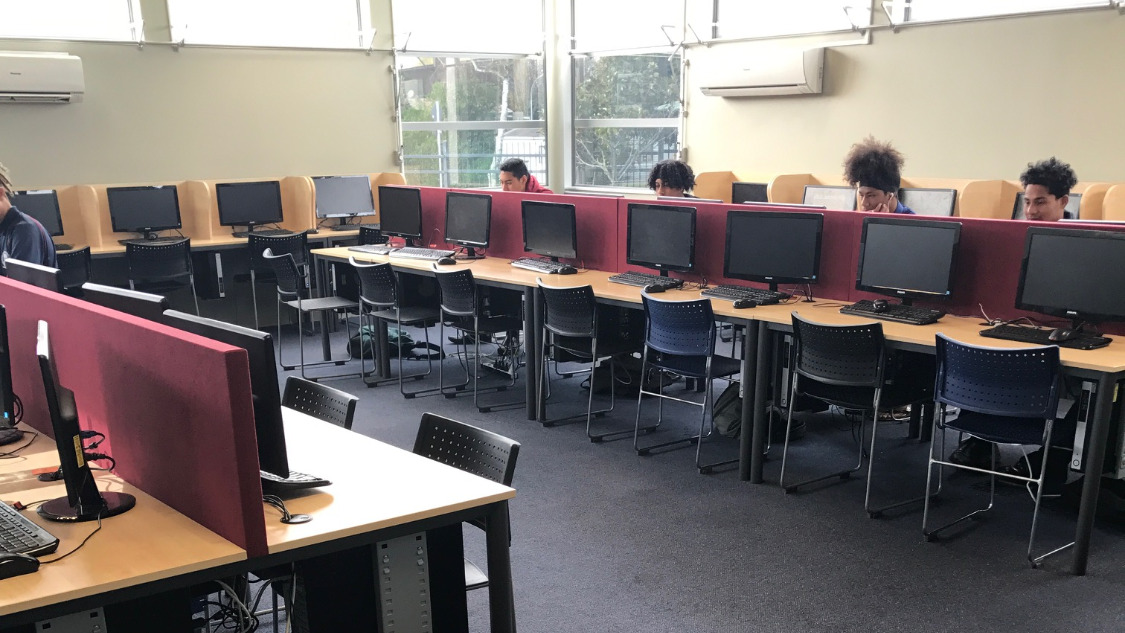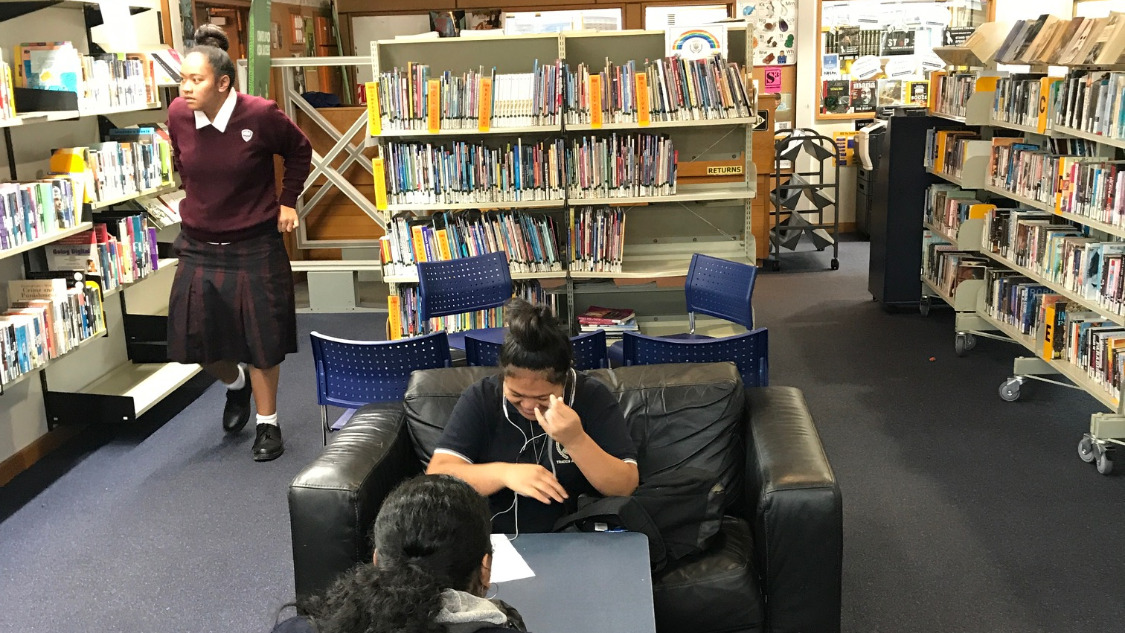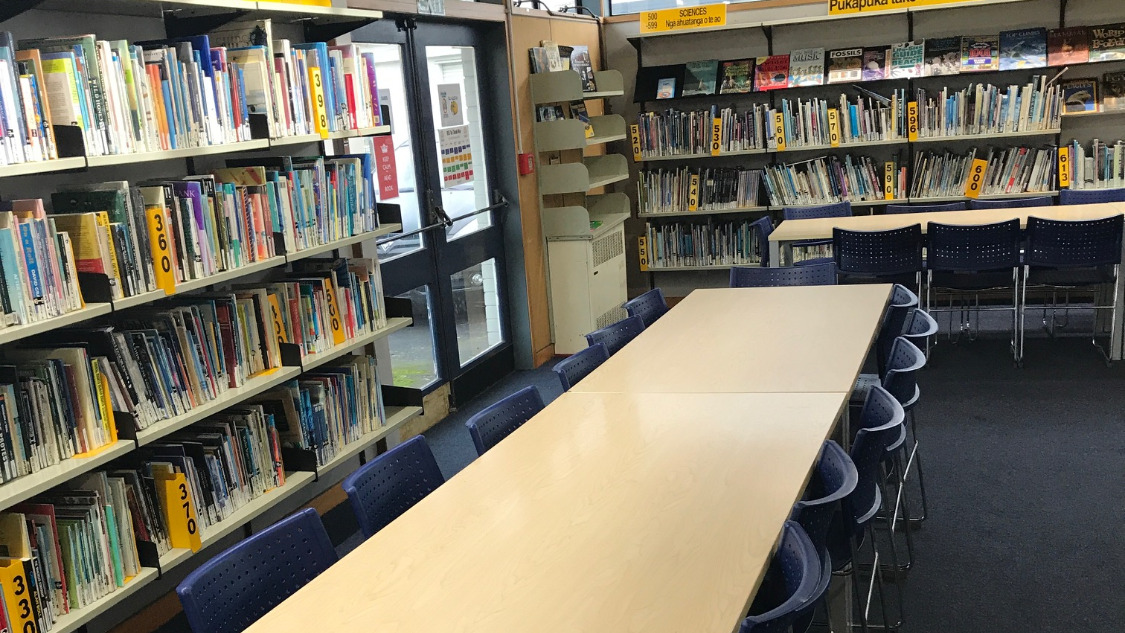New Zealand’s school librarians are passionate, engaged professionals who know how to get students of all ages and reading levels into reading. This, by Ebenezer Moses of Tamaki College, is the fourth in our series about the School Librarians of Aotearoa.
I have been the Librarian/Library Manager at the Sylvia Fausett Library of Tamaki College in Glen Innes, Auckland for the past ten years. I have 12 Student Librarians who come in shifts to assist me. I believe that students should have a wide choice of reading material to choose from and should be exposed to a variety of genres.
After a career in marketing and teaching, I finally feel I have found my niche in my current role as a librarian. Not only am I surrounded by all these books which impart knowledge and fire the imagination of young minds, but I get to interact with these young men and women who are ready to embark on a new journey. I provide a lot of pastoral care in this role, which I find very fulfilling.
My reading and how it informs my role
Looking back across the years, I can see how my taste in reading has evolved, from being a comic-crazy preteen to being addicted to crime thrillers and espionage in my teenage and early adult years. I think I can now safely say that my reading is predominantly non-fiction. My preference now ranges from history to spirituality and philosophy.
However, in my role as the Library Manager for a college, I am forever vigilant of the books that our students should be reading, while also curating a selection that is appealing to their tastes.

A buzzing library
My day starts at 8.00am, when I go around my library and make sure that it is as I left it the previous evening when I closed it. I check all the computers to ensure that they are connected and working. Following that, I attend to all the mail which require urgent responses. At 8.30am, we have staff briefing for 15 minutes.
Back in my office, I make a note of all the bookings for the library and computer room. I check for all new students and staff in KAMAR, and if we have new entrants I add them to the library system.
Next, I tackle the overdue list. I open both e-platforms – Overdrive and Wheelers and see how many books were borrowed. I browse for books on offer at a discounted price and all new books. By then, the students have started to arrive in the library and I need to issue and collect books from them, especially from years 9 and 10 for the Accelerated Reading Programme.

In between, I send emails to teachers and students of available new books, eBooks and audio-books. I get students coming to me from the computer room for forgotten passwords, which is quite a time-consuming job.
I also have students coming from classes requesting books for themselves or on behalf of their teachers. There are those who come seeking a quiet space in the library to study or complete an assignment. Then there are always new books to catalogue, cover and barcode, and old books to be repaired.
Through all this, I need to keep an eye on the students who are using resources in the library or have been sent by their teachers to sit there. The busiest time is the lunch break when the library is swarming with students and their demands for using computers, reading, researching, playing chess. During this busy period, I have three student librarians who assist the other students. They promote new books, issue books to borrowers, shelve the returned or scattered books. They do the same after school as well.

Looking around
When you enter the library to the right is the magazine display shelf and behind that is the ‘Did You Know’ shelf with the high-interest, nonfiction books. Walking forward, you will find new books on display, then comes the Accelerated Reading Programme books. Next are the graphic fiction and nonfiction. In the corner you will find the quick reads.
The opposite end will take you to the fiction section. The seating arrangement here is student-friendly and welcoming. It is convenient for them to relax and read. The Accelerated Reading Programme books, which are in very high demand, are closer to the issue desk for the convenience of both the borrower and the librarian.
The other half of the library has all the non-fiction and reference books; teachers bring their students here for research. A class of 42 students can be comfortably accommodated in this area. Here you will also find two computers, drop-down screen and a projector to assist teachers in their teaching. There’s also a computer room with 50 computers, a drop-down screen and a projector. At any one time, three classes can simultaneously use the computer room.

Accelerated Reading Programme
The Accelerated Reading Programme from Renaissance Learning is one of the most successful reading programmes currently happening at Tamaki College.
This was started with collaboration of the English Department for the Years 9 and 10 students. All students undergo ASSTLE/STAR testing to determine their reading level. We then issue books at the lowest level suitable for them. Once they complete a book, they participate in a quiz designed for that particular book. Depending on their performance they are given the next level, if they score 85% and above. If they score less than 85%, they get a book from the same or lower level to read and comprehend.
I have identified more than 1,200 books from our library and categorised them by different levels. Each of these is clearly labelled on the spine. This Programme was a great success last year. There were more than 4,000 books borrowed by students from Years 9 and 10. This year the programme was started again from Term 2. Already, the numbers are very impressive.
I am involved with SLANZA, School Lib, edWeb.net, National Library network, SCIS and Oliver net. I find them very useful. I get information about libraries from all over the world, eBooks, net books and free professional development webinars.
More Maori, Pasifika and Migrant Voices
I feel that we need to recognise and encourage more of our local authors – Maori, Pacific Island, and other migrants.
Our books need to provide more information of the current environment both political and social, rather than our history: our younger generations need to keep abreast of what’s happening now. This would help our students to accept changes happening around the world. This will broaden their horizons and make them global citizens rather than stagnating in their own little corners.
Multi-pronged approach
I have not been a proselytiser for any one book: my aim is multi-pronged. I would like to see more and more students embrace the reading habit, and at the same time I want to save the environment.
In the time that I have been working here, I continue to encourage students and teachers alike to read electronic books. We have a wide range of more than 2,400 e-books available to suit all ages and tastes. Not only do Tamaki College students have access to my e-library, but 11 of our neighbouring schools have access to the Sylvia Fausett Library through the Manaiakalani Programme.
Ebenezer Moses
Ebenezer is an Economics Graduate. His experience is vast, having gained extensive knowledge of Veterinary Science and Medicine through his work in the Pharmaceutical and Marketing industry. His love of Literature and Science has seen him teaching undergraduates in a non-English speaking country. He feels he has found his niche in his current role as a librarian.



